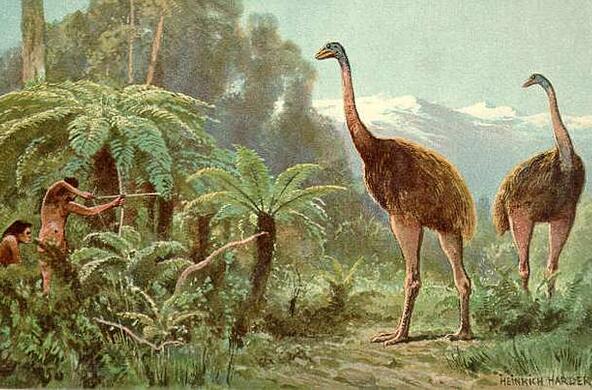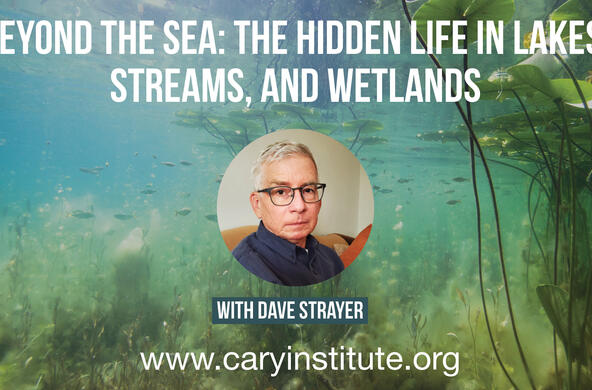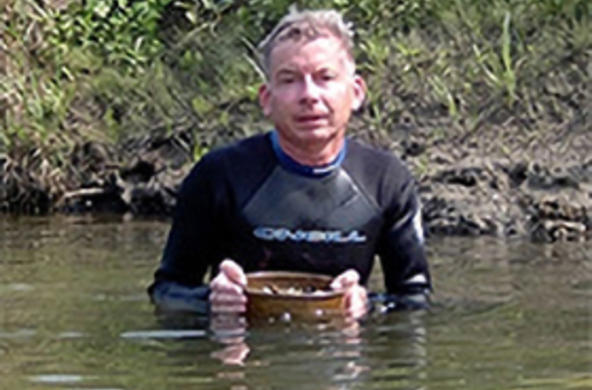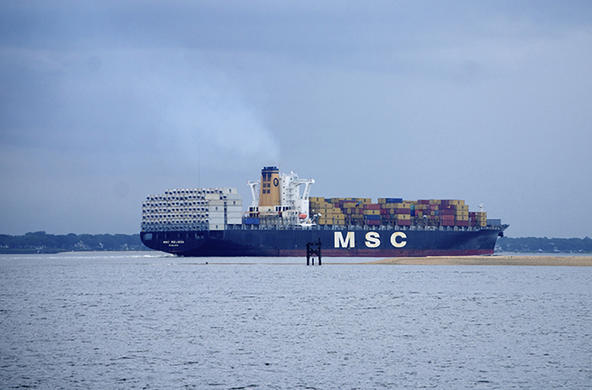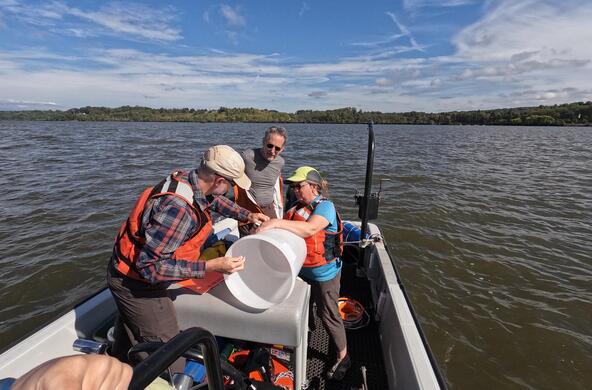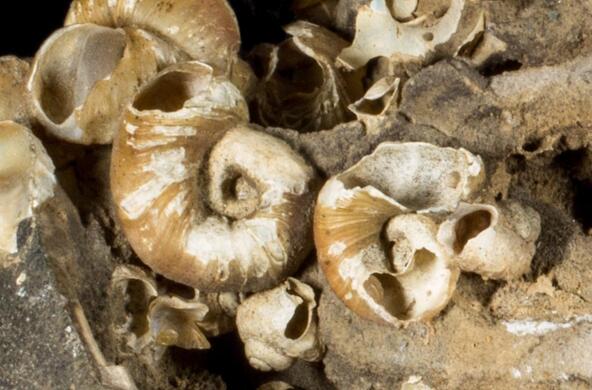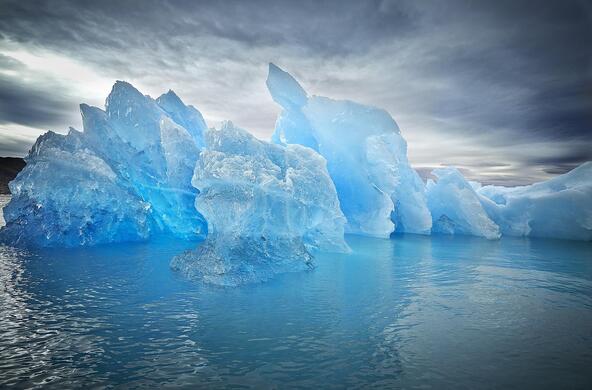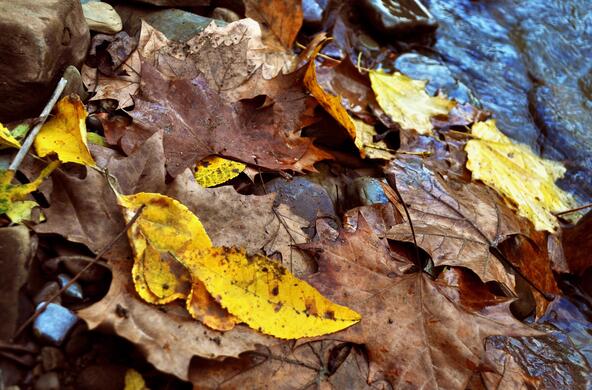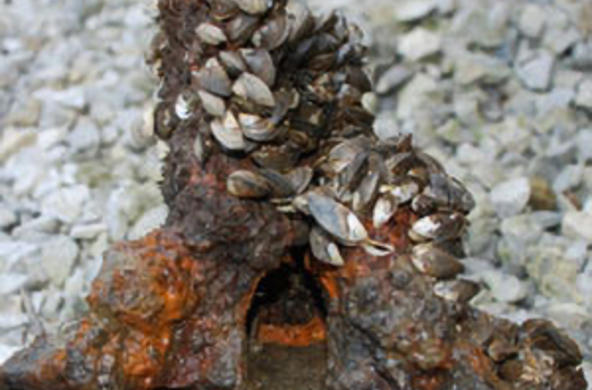
- Profile
- Videos & Podcasts
- Past Projects
- Publications
Dave Strayer is no longer doing original research, but continues to be active in freshwater ecology, especially in conservation ecology and analyses of the ecology of invasive species and freshwater mollusks (clams, mussels, and snails) and the roles of filter-feeders in freshwater ecosystems.
He just published a book for general audiences on the wonders of inland-water ecosystems and the remarkable life that they support: "Beyond the Sea: The Hidden Life in Lakes, Streams, and Wetlands." (“Not since Luna Leopold's classic A View of the River has a scientist decoded the intricacies and wonder of freshwater systems in such an approachable way”, “…written in an engaging style, fact-filled with fascinating examples, and thought-provoking”, “If you’ve been looking for a book that describes the sex lives of dehydrated invertebrates, look no further.”)
In addition to this book, he continues to write occasional short essays on ecological topics for the general public, several dozen of which are collected in The Lost Snail of the Yangtze and Other Essays.
He has been busy writing synthesis and review papers in academic journals (e.g., Aldridge et al. 2023, Seebens et al. 2023), including a new paper on monitoring freshwater mussel populations and the importance of lagged processes in their ecology (Strayer 2024). Dave was especially pleased to have the chance to work again this year with Professor David Dudgeon of the University of Hong Kong on an extensive review of the pressing problems in freshwater biodiversity conservation: "Bending the curve of global freshwater biodiversity loss: what are the prospects?" He is currently working on a review of suspension-feeders (animals that feed by removing tiny particles from the water, and which can have large, pervasive effects on aquatic ecosystems) and their roles in freshwater ecosystems.
Finally, Dave has been working with academics and agency biologists on the management of Michigan’s freshwater mussels (an imperiled group of animals). He helped to develop and run a test for mussel identification (now required of contractors who work on freshwater mussels in the state). Joe Rathbun (a retired agency biologist) and Dave have been teaching a short class on mussel biology and identification.
-
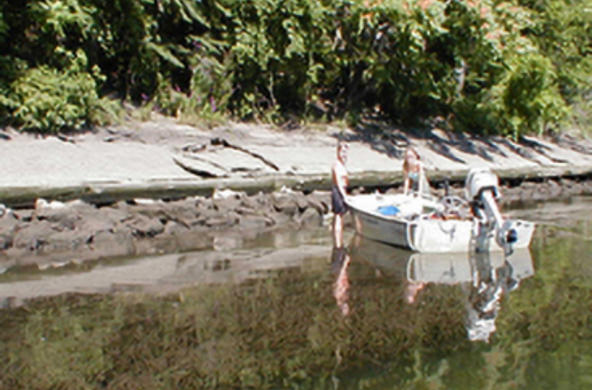
Ecological Functions of Submersed Plant Beds
It has become apparent that these beds of submersed aquatic vegetation ("SAV") may play important roles in the river's ecosystem.
-
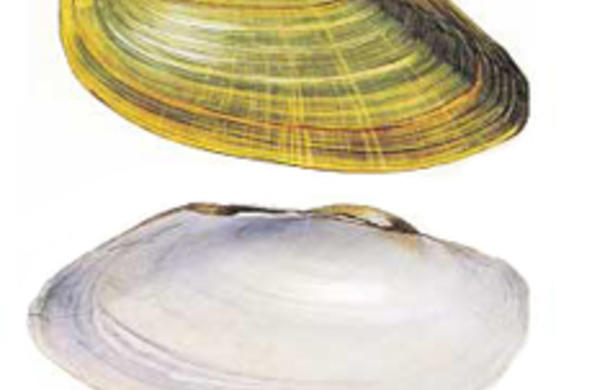
Pearly Mussel Ecology
North America's endemic flock of ~300 species has been identified by The Nature Conservancy as the most imperiled group of plants or animals on the continent; dozens of species are already extinct and >100 species are in danger of extinction.
Articles by David Strayer
Books

Beyond the Sea: The Hidden Life in Lakes, Streams, and Wetlands
Johns Hopkins University Press, 2024

Fundamentals of Ecosystem Science
2nd ed. Elsevier, 2021

The Hudson Primer: The Ecology of an Iconic River
University of California Press, 2012

Freshwater Mussel Ecology: A Multifactor Approach to Distribution and Abundance
University of California Press, 2008


